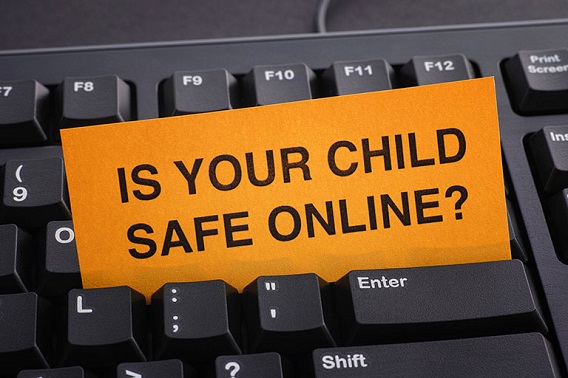It's hard to keep your kids safe online. You want them to have the freedom to explore and learn, but you also don’t want them to get hurt. Predators are everywhere, and they can be very cunning and inventive.
Luckily, there are ways to keep your kids safe online without denying them access to the internet altogether. If you follow these simple tips, you’ll be able to rest easy knowing that your kids are protected.
Talk to Your Kids About Online Threats
The first step in keeping your kids safe online is to talk to them about the dangers lurking on the internet. They need to know there are people out there who would hurt them, and they need to be aware of the warning signs. Teach them not to give out personal information, not to meet strangers they met online, and not to click on links from people they don’t know.
Open communication is essential because your children need to feel free to discuss with you any questions they might have, and, most importantly, they should know they can always turn to you for help in case someone starts bullying them online.
Install Parental Control Software
Modern problems require modern solutions. Parental control software is a great way to keep your kids safe online. It allows you to monitor their internet use and block sites that are inappropriate for them. You can also set limits on how much time they can spend online and see what sites they’ve visited. Apart from keeping your children safe from harmful content the internet is awash with, parental control software is also great if you’re worried your kids spend too much time surfing the internet or playing games on their phones or if their teachers complain they don’t pay attention in class.
The best parental control software solutions are typically highly customisable, meaning you’ll be able to manually choose the sites your kid will be able to access and those the program will block. These tools also enable you to choose the level of autonomy you’ll give to your kid depending on their age, which is important for parents who understand the child’s need for privacy and don’t want to feel like they’re spying on their offspring.
READ ALSO: 10 things that can help you keep your blood pressure in check
Keep the Computer in a Common Area
This is a simple and old trick that doesn’t require purchasing a software package. If you put the computer in a common area, you’ll be able to monitor your kids’ internet usage more easily. They won’t be able to access inappropriate material if you can see what they’re doing, and besides, you’ll know how much time they spend online. The downside of this solution is that it only helps with desktop PCs and laptops. You won’t be able to keep tabs on them while they’re using their smartphones.
Lead by Example
This tip might be the toughest for parents to follow, but you’ll have to be careful with how you use technology in front of your children. With children, just like with adults, what you do and how you behave matters more than what you say. If you tell them not to use their smartphone after 7 p.m. while you continue fiddling with your phone, this will not sit well with them. Modify how and when you use technology and social media, set a good example, and children will learn from you.
This is important because cyberbullying, identity theft, malware attacks, and other online threats are not the only things your child needs protection from. Childhood is a period of intensive learning and forming habits that’ll last a lifetime, so you want to make sure your kids develop a long attention span and the ability to focus and resist the temptation of spending all their leisure time online.
Restrict Social Media Access
This is the most important tip we can give you: Teach your kids to act on social media as they would in real life. The sooner they learn how to behave responsibly on Facebook, TikTok, or Instagram, the better.
In general, kids shouldn’t have access to social media before turning 13. Facebook, Instagram, YouTube, and other social media platforms all have similar age restrictions. However, even when parents impose these restrictions, children might ask a friend or older sibling to open an account for them or use their account.
As you probably already know, it’s very challenging to keep kids from social media. If they already have an account or access to these networks, teach them how to create strong passwords to avoid someone hacking their profile. Teach them what posts should be public and what shouldn’t be. Pay attention to their school performance. You’d be surprised at how often social media is involved when grades start dropping or a child isolates themselves from their friends. There is a lot of toxicity on social media and forums, so it’s vital that you stay informed and always be ready to spring into action.
These are just a few of the ways you can keep your kids safe online. By following these simple tips, you can give your children the freedom to explore the internet while keeping them safe from harm.
Source: Mila Bera





